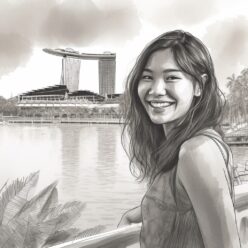In a significant development in Singapore’s political landscape, four opposition parties have announced the formation of ‘The People’s Alliance’ to contest in the next General Election (GE). The coalition will comprise of the Peoples Voice, Reform Party, People’s Power Party and the Democratic Progressive Party.

The leader of Peoples Voice, Mr Lim Tean, announced on his Facebook page that the alliance would contest all the seats that the constituent parties had vied for in GE2020, as well as others. This development comes after months of dialogue among the parties, with discussions to form an alliance commencing in January. The coalition is in the process of registering with the Registry of Societies.
Once the registration is approved, a press conference will be held alongside the alliance’s official launch. Mr Lim, who will serve as the secretary-general of The People’s Alliance, expressed that the formation of this alliance was in response to the calls from Singaporeans for greater opposition unity.
Despite previous unsuccessful attempts at forging alliances among opposition parties, this new coalition aims to challenge the status quo and present a unified front in the forthcoming GE. Mr Lim stated that the parties are in agreement on the major issues impacting Singapore’s future prosperity and have developed a manifesto for the GE.
In light of the development, the individual parties forming The People’s Alliance will continue to operate separately. Each of these parties has had no representation in Parliament.
The People’s Alliance isn’t the first coalition of opposition parties in Singapore. In June 2001, the Singapore Democratic Alliance (SDA) was formed comprising the Singapore People’s Party (SPP), National Solidarity Party (NSP), Singapore Justice Party (SJP), Singapore National Front (SNF) and Singapore Malay National Organisation (PKMS). The SDA has gone through several shifts in its composition and continues to engage with constituents and express its views on political issues.
The emergence of The People’s Alliance indicates a dynamic shift in Singapore’s political arena. As this alliance prepares to contest in the next GE, it remains to be seen how this unified front will impact Singapore’s political future.
